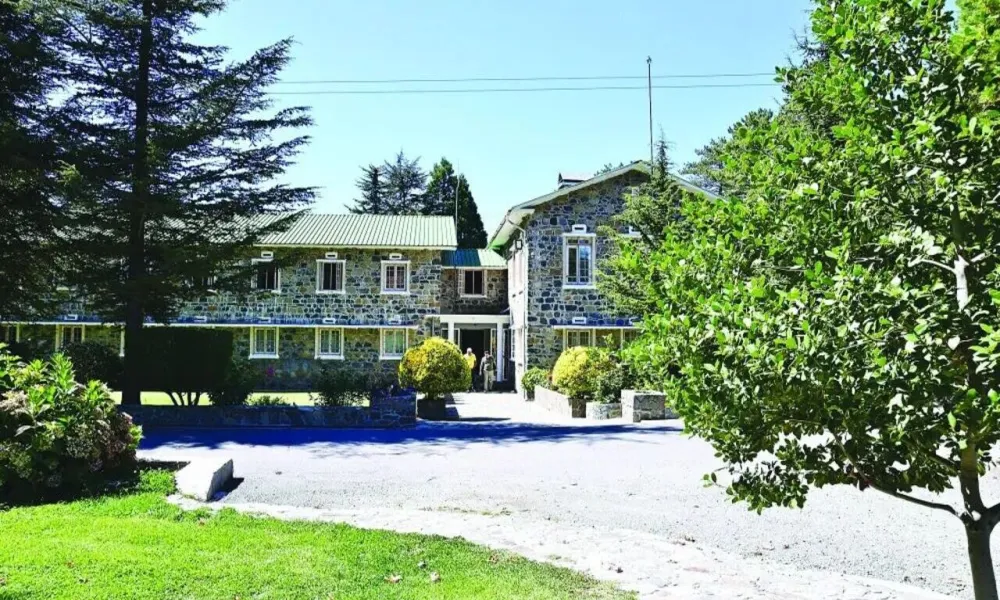Over 40 years ago, a Gambian student was one of many who attended Cyprus’ Forest College. A letter he penned to his mentor when he returned to his native home in West Africa, illustrates how wide-reaching the iconic institution was, attracting students from across the globe.
And now, after a decade-long hiatus, the countdown has begun for the long-awaited reopening of the historic Forest College this month. The iconic institution, founded in 1951 during British rule under the motto “Sine silvis nihil restat” ("Without forests, nothing remains"), is making a comeback with a modernised, three-year academic program: the Higher Diploma in Forestry.
A Legacy of Excellence
Andreas Mavroyiakoumos, Director of the Forest College since 2007 and faculty member since 1999, underscored the significance of its reopening in an interview with Politis. “This institution carries a tremendous legacy. From 1951 to 2015, it was the main source of personnel for the Department of Forests. Its role has been critical to forest preservation and management in Cyprus.”
Among its proud alumni is renowned botanist and honorary professor at the University of Cyprus, Georgios Chatzikyriakou, whose contributions to the scientific community include the discovery and classification of endemic plant species in Cyprus. Reflecting on his student years (1967-1969) and teaching period (1980-1982) at the College, he said: “Everything I have achieved in life stems from the Forest College.”
Chatzikyriakou authored four textbooks used in the curriculum until 2015, covering subjects like zoological and botanical terminology and general botany. He fondly recalled learning practical skills like traditional land surveying, geology, and forest engineering - knowledge he still applies in fieldwork today.
However, the early years weren’t without their challenges. “Back then, students were expected to carry out duties equivalent to full-time forest officers from day one. Some were even assigned to remote forest outposts as a form of discipline,” he noted.

From 1951 to 2015, 349 international students from 48 countries attended the Forest College.
First 20 Students Secure Places for Revamped Forestry Program
Starting September 15, the top 20 candidates selected from 151 hopefuls will begin their studies in the upgraded diploma program. These students earned their places after written exams and physical tests (including endurance on rough terrain), marking the beginning of a new chapter for Cyprus’ forestry education.
The newly revamped three-year curriculum has received full accreditation by the Cyprus Agency of Quality Assurance and Accreditation in Higher Education (DI.P.A.E.). This recognition not only validates the academic standards of the Forest College, but for the first time allows students to participate in international exchange programs - a privilege previously reserved only for faculty.

International Reach and New Academic Goals
The Forest College has a long-standing tradition of global outreach. Between 1951 and 2015, it educated 349 international students from 48 countries - primarily from Asia, Africa, and Latin America, often through scholarships provided by former colonial powers such as the UK and France.
The first semester of the new program will begin with seven core courses. Four of them will be taught by postgraduate and doctoral-level instructors from the Department of Forests, while three will be delivered by external scientific collaborators. “Bringing in external experts is part of our strategy to enhance the quality of education,” Mavroyiakoumos explained.
Future academic plans include launching specialised programs in forest fire prevention and management, aimed at both local and international stakeholders. With decades of expertise in fire control and conservation, the College is poised to become a training hub in this vital field. Research will also be a key pillar moving forward, with proposed areas including paleobotany, archaeobotany, palynology, and studies on deforestation from antiquity through to Ottoman rule.
From Cyprus to The Gambia: An Enduring Educational Impact
The international legacy of the Forest College is reflected in stories like that of M. Jaiteh, a student from The Gambia who attended the College between 1980 and 1982. Chatzikyriakou recalls how Jaiteh initially questioned the importance of botany. “He once said to me in class, ‘Why are we learning this? I’ll just be painting pine trees with resin buckets.’”
In response, Chatzikyriakou challenged his thinking: “What will you do when foreigners come to study your country’s flora and ask you to collect samples for a herbarium?” That night, Jaiteh returned to his professor’s office requesting a list of botany books relevant to The Gambia. Days later, he had ordered them all.
Months after returning to his country and assuming a senior government role, Jaiteh sent Chatzikyriakou a handwritten letter. In it, he wrote: “Mr. Chatzikyriakou, I followed your guidance in botany and have started developing a herbarium for The Gambia” - the first of its kind for the West African nation.
M. Jaiteh's letter:

Looking Ahead
Since its founding, the Forest College has trained a total of 890 students - 349 of them from abroad. Its return marks not just a revival of a respected institution but the continuation of a tradition rooted in scientific excellence, environmental stewardship, and international collaboration.
With modernised facilities in Prodromos, certified academic programs, and a renewed vision for global cooperation and research, the Forest College is ready to once again become a cornerstone of forestry education - in Cyprus and beyond.
